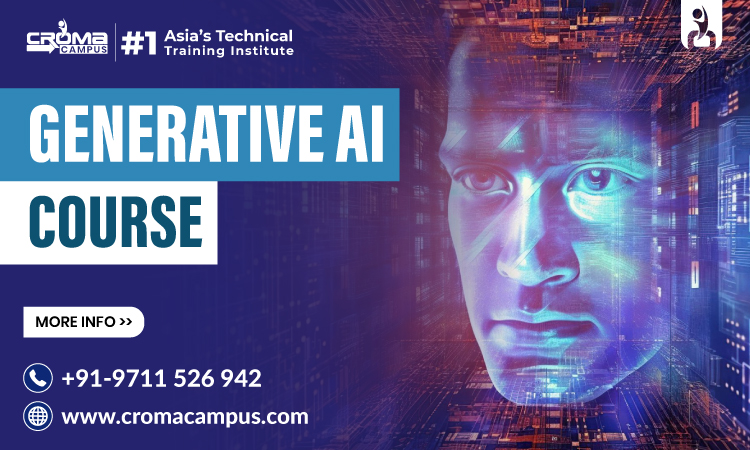What Are the Challenges of Generative AI? What’s Next?

Generative AI is a technology that can create new content like text, images, and music, mimicking human creativity. With the growing interest in this field, many people are looking to gain skills through programs like Generative AI Certification. While generative AI shows a lot of potential, it also comes with several challenges that need to be tackled. In this blog, we’ll explore these challenges and think about what the future holds for generative AI.
What is Generative AI?
Generative AI refers to computer programs that can generate new content based on the data they learn from. For instance, tools like ChatGPT can write articles and stories that sound like they were written by a human. Other generative models can create artwork or compose music. The possibilities are vast, but as businesses start using these technologies, they face a range of issues that can affect how well they work.
Key Challenges of Generative AI
| Challenge | Description |
| Data Quality | Generative AI needs good-quality data for training. Poor data can lead to wrong or biased results. |
| Bias and Fairness | AI can unintentionally show biases from the data it learns from, resulting in unfair outcomes. |
| Intellectual Property | Who owns the content created by AI? This question is still unclear and can lead to legal issues. |
| Misuse and Misinformation | Generative AI can be used to create misleading information or deepfakes, which can cause harm. |
| Technical Complexity | Setting up and using generative AI systems requires a lot of technical knowledge, which can be hard to find. |
1. Data Quality:
The effectiveness of generative AI heavily depends on the quality of the data it learns from. If the data is old, incomplete, or biased, the AI will produce outputs that reflect these problems. For example, if a model is trained on biased data, it may generate results that reinforce stereotypes. To achieve accurate and trustworthy outputs, it’s vital to use high-quality, diverse data.
2. Bias and Fairness:
Bias is a major concern in AI technology. Generative AI can reflect societal biases found in the training data, which can lead to unfair or harmful results. For instance, if an AI model is trained mainly on data from one demographic group, it may not accurately represent others. This is why it’s crucial for companies to focus on identifying and correcting biases in their AI systems. Taking a ChatGPT Course can help individuals understand how to spot and mitigate these biases.
3. Intellectual Property Issues:
As generative AI creates new content, questions about ownership arise. If an AI generates a song or a piece of art, who owns the rights to that work? This is a complicated issue, and many legal questions remain unanswered. As the technology grows, it will be essential for laws and regulations to clarify who holds the rights to AI-generated content.
4. Misuse and Misinformation:
Generative AI has the potential to be misused. For example, it can be employed to create fake news articles or deepfake videos that could mislead the public. Such misuse can harm individuals, businesses, and even entire communities. To combat this risk, organizations must develop ethical guidelines and monitoring systems to prevent the negative use of generative AI technologies.
5. Technical Complexity:
Implementing generative AI systems is not easy. Many organizations struggle to find skilled professionals who can work effectively with these advanced technologies. This lack of expertise can slow down the adoption of generative AI solutions. Programs like Generative AI Certification can help fill this skills gap by training professionals to use these tools properly.
What’s Next for Generative AI?
As technology continues to evolve, we can expect improvements in several areas:
1. Enhanced Algorithms:
Future advancements will likely lead to better algorithms that can understand context more deeply and produce higher-quality content. These improvements will increase the reliability and flexibility of generative AI applications.
2. Regulatory Frameworks:
As concerns about bias and misuse grow, regulations will probably emerge to govern how generative AI is used. Clear rules will help ensure these technologies are used ethically and responsibly.
3. Better Training Programs:
To address the skills gap in the industry, more training programs will likely be developed. Courses like the ChatGPT Course can help professionals learn about the latest developments and ethical considerations in generative AI.
4. Collaborative Solutions:
It will be important for technology companies, policymakers, and researchers to work together to address the challenges of generative AI. By joining forces, stakeholders can develop solutions that maximize the benefits of this technology while minimizing its risks.
Sum up,
Generative AI is a powerful technology with great potential, but it also faces numerous challenges. From issues with data quality and bias to legal questions and technical complexity, understanding these hurdles is essential for anyone interested in this field. By investing in training and ethical practices, businesses can better navigate these challenges and pave the way for a responsible future in generative AI. With the right education, such as Generative AI Certification, professionals can lead in this exciting area and contribute to its positive impact on society.





